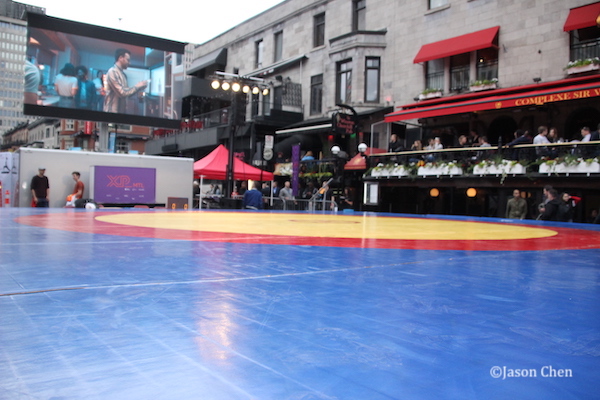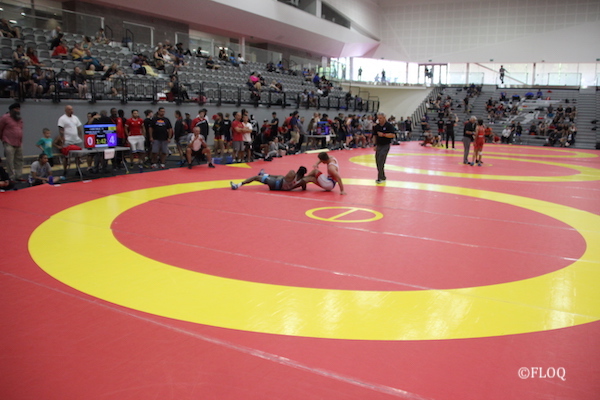Saturday July 13th, 2019
With my last tournament done last weekend, I’ve finally come to the end of my competitive season with both my high school and club teams. Practices are still on going, because let’s face it, there really is no off-season in wrestling when you think about it. This down time has allowed me to reflect on certain things that have happened in the past year both to me personally and with wrestling in the province as a whole.
First and foremost, I need to look seriously towards rebuilding my high school team for next year as the bulk of my team graduated this year. While I’m grateful for all the time they put in, they really didn’t help to contribute to building a next generation of wrestlers and as a result, my task is made that much harder. In a way, this is a refreshing challenge. Given the difficulties I had in my personal and professional life, I’m going to try and tackle this with a fresh perspective and hopefully recapture some of the enthusiasm I had many years ago. After much reflection, I think that I can change and adapt to what’s going on and be a better coach for it.

The Urban Games was a fun distraction amidst all the turmoil
Dealing with the government was a challenge as I was on a committee that helped to create a new constitution for the FLOQ. I learned a lot about governance when dealing with amateur sports and any time you can expand your horizons, this can never be a bad thing. I think that this is a great step in moving forward and will allow the Quebec Wrestling Federation to become better. In addition to this, hopefully we can use this momentum to build on our numbers and make our grassroots in our province better. Sadly, this will be the big challenge as numbers are down everywhere and not just in our province.
This was somewhat confirmed last weekend in speaking with Don McGee of the Mohawk Valley Wrestling Club. I’ve known Don for many years, both as an athlete and as a coach. Don has seen me grow up in the sport and I’ve always had great admiration for what he does, as he is one of the very few clubs in the United States who do only Freestyle and Greco-Roman and not the more popular Folkstyle that is so common to our American neighbours. He even told me that in the United States, numbers are down across the board. Even in a country as fervent about wrestling as the United States, young kids are not going to wrestling more and more. We alluded to the fact that the difficulty of wrestling is what pushes a lot of kids away and that with the variety of sports being offered to young kids these days, it’s easier for kids to quit and go into something else rather than sticking it out.

The Ontario Cup had some decent numbers this year
Keeping with that current train of thought, it also seems to be just as difficult to keep coaches in the sport. We have less qualified and certified coaches today, which is something else we need to address. Low numbers was not always the case however. In the province of Quebec, we had healthier numbers back during the 70s and 80s due to the fact that we had more clubs training wrestling and even in the 90s, our numbers weren’t that bad. Fast forward to now and Quebec has seen three major school strikes. After each one of these strikes, our numbers have dropped, as coaches who once ran these high school teams, didn’t restart their programs. This had an effect on the grassroots levels as we lost many feeder schools. The law of averages basically dictate that the more athletes we have, that even if only ten continue on after high school, we still have more than what we have now even if twenty percent of our athletes continue on. What were some of the problems that these coaches encountered where they felt that they couldn’t restart their programs? There could be many reasons but the fact remains that coaching wrestling is tricky in that while we would like to have people involved, you need a certain level of qualification. To coach either high school basketball or soccer doesn’t seem to require a certain prerequisite skill in that there are lower divisions to accommodate coaches who may not be as qualified. Wrestling doesn’t have those divisions, as weight is often the only thing that separates wrestlers from one another in high school.
Added to the fact that to coach in tournaments outside of the high school league, you need a certain level of certification, adds another obstacle to continuing on. Don’t get me wrong, I do believe that we need coaches to be certified because this implies a certain level on quality and makes it consistent and fair across the board. Whatever the case, we need to revitalize our numbers in the coaching sector in order to have people to run programs if we want to wrestling to not only continue, but to thrive. This is yet another challenge that we face as a federation if we are to continue to grow.
In retrospect, this article is a lot longer than I anticipated. The absence of anything pressing has given me much time to reflect and while heavy introspection can be uncomfortable, it is often necessary to grow and evolve. I guess this is also a metaphor for what we need to do to move on as province. Let’s hope that we can accomplish this sooner rather than later.

